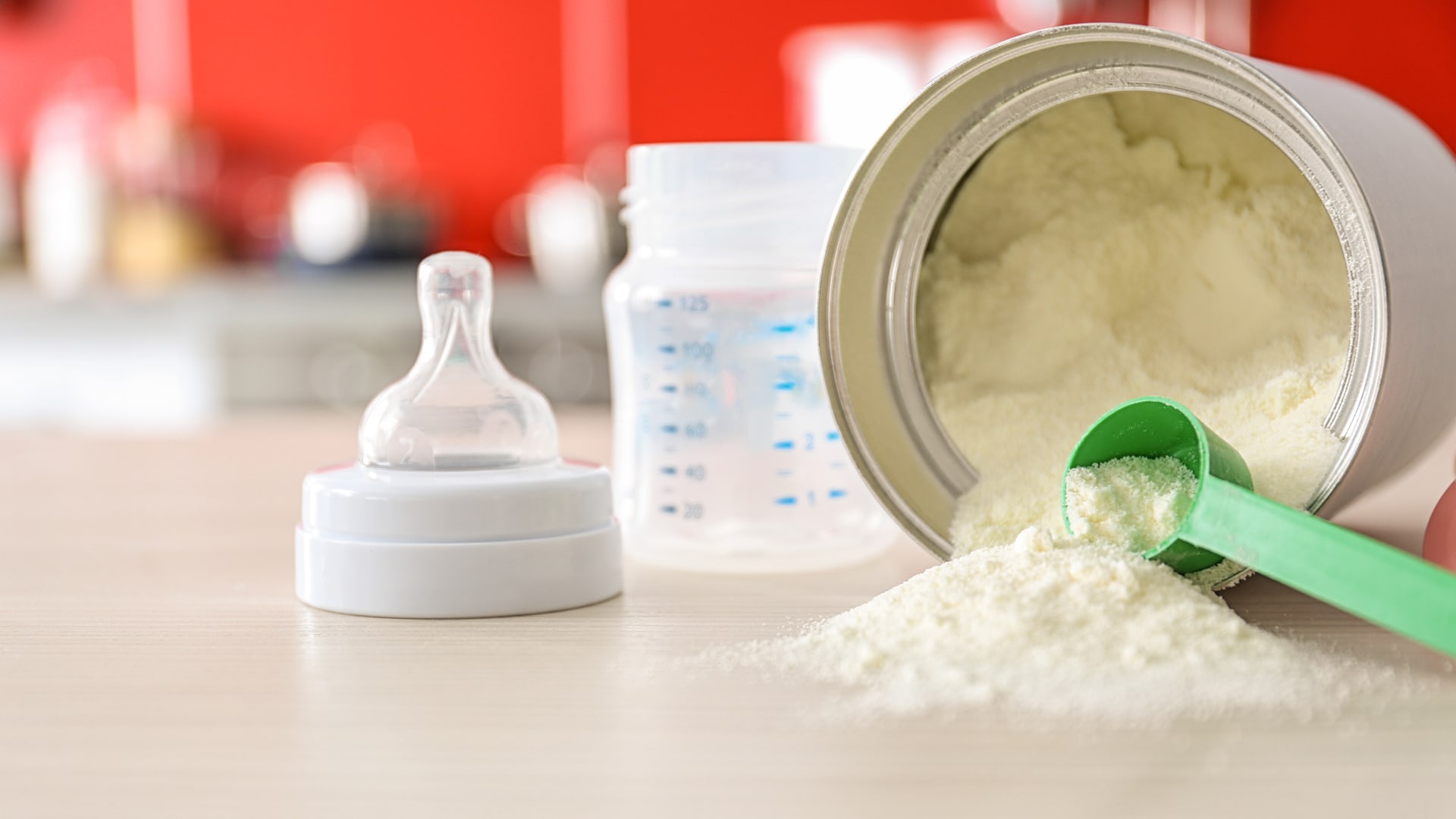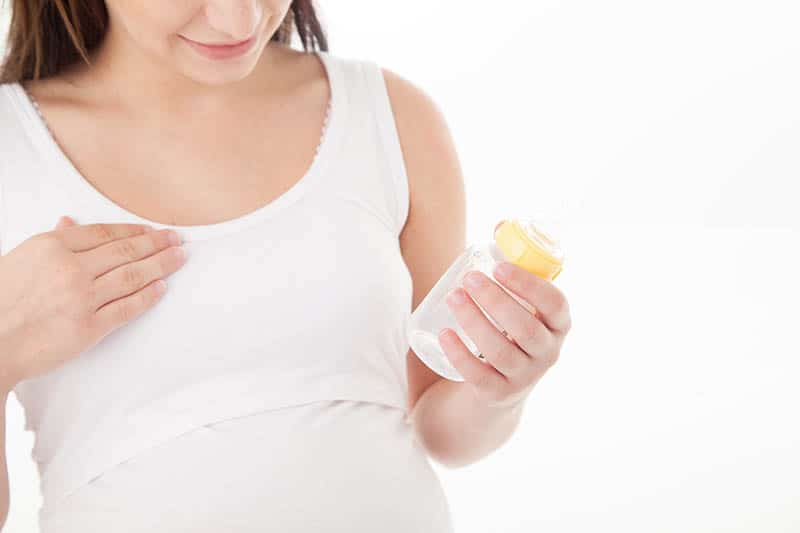Parents across the country are struggling to find baby formula due to a nationwide shortage. Here is what parents need to know about the baby formula shortage and what they can do if their brand is out of stock
Why is there a baby formula shortage?
There have been baby formula shortages in U.S. stores throughout the COVID-19 pandemic, said Steven Abrams, M.D., professor of pediatrics at the University of Texas Dell Medical School. The shortages, due in part to supply chain issues, have recently been exacerbated by recalls of several formula products.
“Inflation, supply chain shortages, and product recalls have brought an unprecedented amount of volatility for baby formula,” Ben Reich, founder and CEO of Datasembly, said in a report about the baby formula shortage on April 13. “We expect to continue to see the baby formula category being dramatically affected by these conditions.”
In February 2022, Abbott Nutrition, a large infant formula manufacturer, announced a major recall of some products. The company recalled Similac, Alimentum and EleCare powder formulas manufactured in the company’s Sturgis, Michigan, facility on Feb. 17, followed by another recall for one lot of its Similac PM 60/40 on Feb. 28.
The U.S. Food and Drug Administration (FDA) says it is investigating consumer complaints of bacterial infections in four babies who consumed formula produced in the Michigan facility. All four babies were hospitalized, and the bacterial infections may have led to two deaths.
The recalled products should no longer be for sale, according to the FDA. But parents who have these products in their homes should check the lot code on the bottom of the package to determine if they are included in the recall. The FDA has a full list of recalled brands on its website.
What should parents do if their baby formula brand is out of stock?
If your trusted formula brand is out of stock, you still have options. First, call your OB-GYN or pediatrician to see if they have any in-office baby formula samples or ask if they can suggest a formula that may be more readily available and is nutritionally similar to their baby’s typical formula, according to guidance from the U.S. Department of Health and Human Services (HHS).
Generic formula brands from a grocery store or pharmacy as an alternative to your baby’s normal brand are “equally effective and safe to use,” pediatrician Ilan Shapiro, M.D., told VERIFY. Shapiro also suggested breast milk banks, where other parents are giving away their breast milk, as an option if the baby’s formula brand isn’t available.
The Human Milk Banking Association of America has a map and list of 31 member milk banks throughout the country online.
Donated breast milk is very safe. Mothers are tested for any illness that could pass through their breast milk before they donate it and containers of milk are tested for harmful bacteria,
Babies can also begin eating solid foods that can complement, or add to, breast milk or formula at about six months old, the Centers for Disease Control and Prevention (CDC) says on its website. By the time your baby is about 7 or 8 months old, you can introduce them to a variety of different foods, including infant cereals, meat, fruits, vegetables, grains, yogurts and cheese, among others.
Is homemade baby formula safe?
The American Academy of Pediatrics (AAP), HHS and other medical experts warn against diluting formula with water or making baby formula at home, as some on social media have suggested. Homemade baby formula is not safe and does not meet babies’ nutritional needs. Infant deaths have been reported from the use of some homemade formulas, according to the AAP.
The U.S. Food and Drug Administration (FDA) also advises parents to not give babies homemade infant formula because of serious health and safety concerns, including contamination, nutritional imbalances and foodborne illnesses.
The FDA regulates all commercially available infant formulas but doesn’t regulate recipes for homemade formulas.
Can babies have cow’s milk instead of formula?
Parents shouldn’t feed cow’s milk to babies 6 to 12 months old, except in an emergency when every other option has been exhausted.
The CDC and the AAP recommend that babies be introduced to cow’s milk at 12 months old, but not before then and never as the child’s main source of nutrients.
Cow’s milk has too many proteins and minerals for a baby’s kidneys to handle and does not have enough necessary nutrients, the CDC says. It could also put the baby at risk of intestinal bleeding.
“Cow’s milk does not provide enough iron for babies and it can cause them to become anemic. And it also has a lot of different solutes like protein and different things that the kidneys don’t process very well in infants. So we don’t recommend cow’s milk for kids under 1 year old,” Rachel Dawkins, M.D., a pediatrician at Johns Hopkins All Children’s Hospital.
Parents may be able to feed cow’s milk to some babies between 6 and 12 months old if other formula alternatives are unavailable during the ongoing shortage, but this shouldn’t be a long-term solution.
Abrams wrote on the AAP’s parenting website that cow’s milk may be an option for children older than 6 months who are usually on regular formula if other alternatives aren’t available. This does not apply to babies who need specialty formula products for allergies or have other special health needs.
“In a pinch, you could feed them whole cow’s milk for a brief period of time until the shortage is better. This is not ideal and should not become routine. However, it is a better option than diluting formula or making homemade formula,” Abrams said.
What about goat’s milk and plant-based milks?
Goat’s milk is not approved as an alternative feeding option for babies in the U.S. However, there are some goat milk-based baby formulas in other countries that the U.S. Food and Drug Administration (FDA) may consider for accelerated import approval, Abrams said.
Additionally, some plant-based milks like almond milk are not recommended as baby formula alternatives, as they don’t have enough protein or healthy fats that babies need for brain development.
Will Amazon ship formula from Canada to the U.S.?
Some social media users are advising people who can’t find their baby’s formula to switch their Amazon accounts from the U.S. to Canada. Amazon won’t ship baby formula from Canada to the U.S. Though some third-party sellers who sell their items independently on Amazon may do so, experts warn against buying formula products from other countries because the product may not match the higher U.S. regulations requirements. According to Amazon, U.S. customers can’t purchase baby formula products from Amazon Canada if they are sold and shipped by Amazon or sold by third-party sellers and shipped by Amazon.
SOURCES
- U.S. Department of Health and Human Services (HHS)
- Centers for Disease Control and Prevention (CDC)
- American Academy of Pediatrics (AAP)
- U.S. Food and Drug Administration
- Datasembly, data collection company providing access to grocery and retail pricing records
- Steven Abrams, M.D., professor of pediatrics at University of Texas Dell Medical School
- Ilan Shapiro, M.D., pediatrician and chief health correspondent and medical affairs officer at AltaMed Health Services
- Rachel Dawkins, M.D., medical director of the pediatric and adolescent medicine clinics at Johns Hopkins All Children’s Hospital






